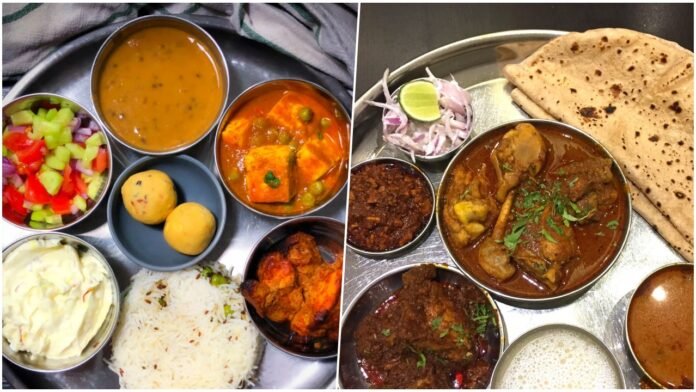
New Delhi: The festive season and unseasonal rains have led to a surge in the prices of essential food items, especially onion and tomato, in November. This has affected the affordability of both veg and non-veg thalis, which are the staple meals for many Indians. According to a report by rating agency Crisil, the price of home-cooked veg thali increased by 10 percent and non-veg thali by 5 percent in November compared to October.
Veg thali becomes dearer due to onion and tomato
The main reason for the increase in the price of veg thali is the sharp rise in the prices of onion and tomato, which are widely used in Indian cuisine. Onion and tomato prices have increased by 58 percent and 35 percent respectively in the last month, due to lower supply and higher demand. The production of onion and tomato has been affected by unseasonal rains in the Kharif season, which damaged the crops in major producing states like Maharashtra, Karnataka, and Andhra Pradesh. The annual increase in the prices of onion and tomato is 93 percent and 15 percent respectively. The price of veg thali has also been influenced by the increase in the prices of pulses, which are another important source of protein for vegetarians. The price of pulses has increased by 7 percent in the last month and by 13 percent on an annual basis.
Non-veg thali becomes slightly expensive despite lower chicken and mutton prices
The price of non-veg thali has increased by 5 percent in November compared to October, despite the decline in the prices of chicken and mutton, which account for 50 percent of the cost of non-veg thali. The price of chicken has decreased by 1 percent and mutton by 3 percent in the last month, due to lower demand and higher supply. However, the impact of lower chicken and mutton prices has been offset by the increase in the prices of onion and tomato, which are also used in the preparation of non-veg dishes. The annual increase in the price of non-veg thali is 8 percent.

The inflation in the food sector has hit the common man’s kitchen hard, as both veg and non-veg thalis have become costlier in November. The festive season and unseasonal rains have created a mismatch between the demand and supply of onion and tomato, which are the main culprits for the rise in the prices of thalis. The government has taken some measures to control the prices of onions and tomatoes, such as importing them from other countries, imposing stock limits, and cracking down on hoarders. However, these measures may take some time to show results and ease the burden on the consumers.





















































